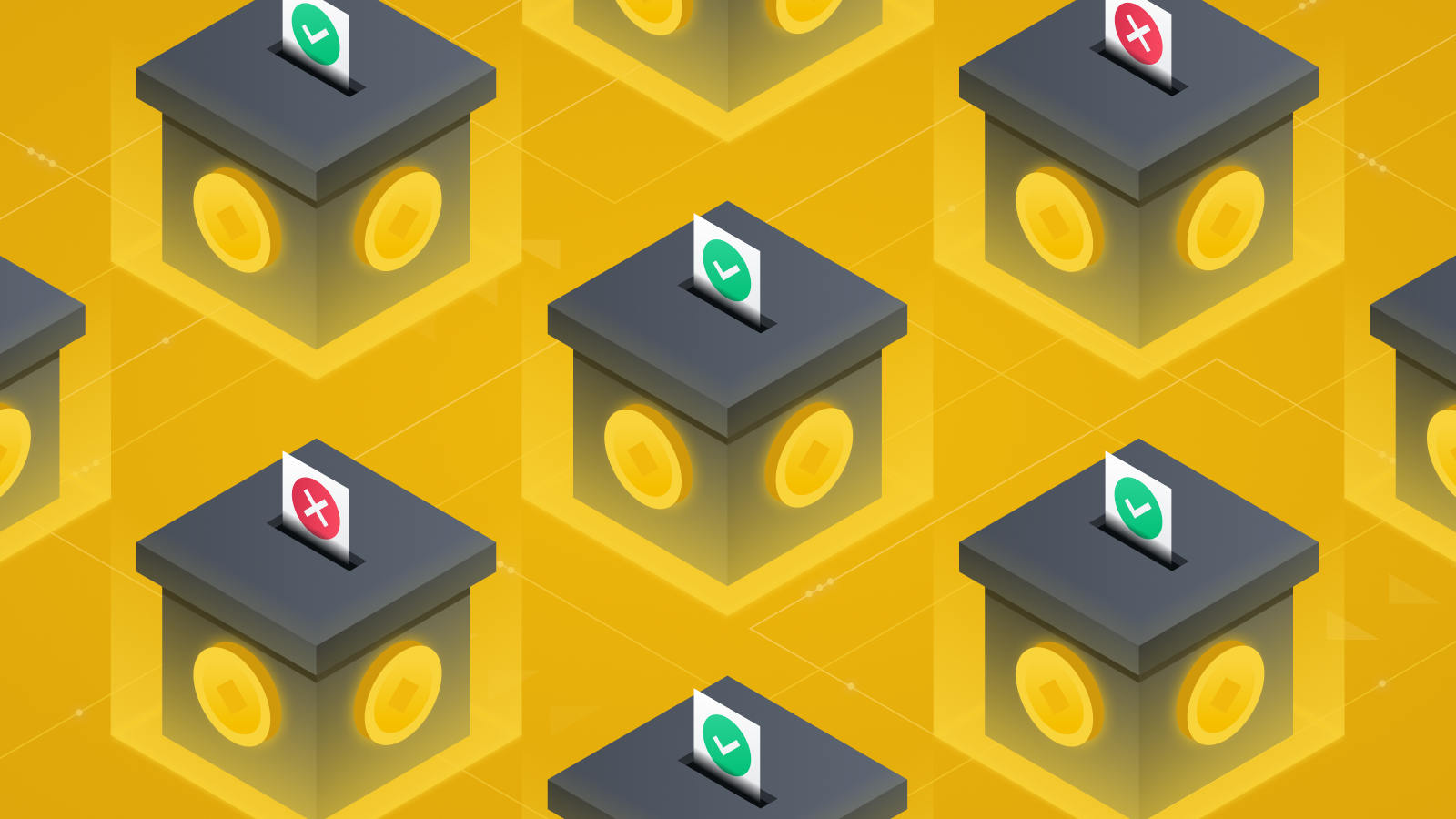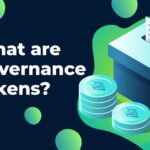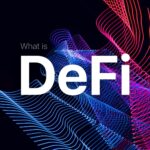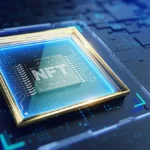The realization of the essence of decentralization at its peak has been the major emphasis ever since its birth. Every investor wants to feel every little bit of decentralization with their investments in any DAO, decentralized finance, and decentralized application projects.
However, many of these projects had to compensate for their investor’s feelings by creating an extra-powered token called the governance token. Now, every investor can have a dream about having full ownership of their tokens or crypto assets from a project.
They can also desire and aspire to become decision makers of blockchain projects.
Let’s see how crypto projects tend to keep their investors engaged with the governance token. Enjoy!
Table of Contents
What Are Governance Tokens?
Governance tokens allow users to take on a more active role in managing decentralized projects. This novel innovation is meant to support and emphasize the importance of decentralization as the core of each project. Defi, or any blockchain project, gives its users a utility token.
As far as the participation of every investor in owning the utility token is decentralized, every holder of the utility token is not restricted to the aftermath. As such, they can sell or even buy more without restriction or third party.
However, they are limited to running and making decisions regarding the project. This new invention of the governance token is a breakthrough in the dream of every user interested in becoming a vital decision-maker of a project.
Nigerian crypto traders now have a token they can own without interference.
Through the use of a governance token, developers are offering users a part in running the activities in DAO, DeFi, and decentralized application projects.

Tokenholders are allowed to vote in the direction of a blockchain project
The goal of every holder is to vote on the direction of the blockchain project. With this effect, users can now implement changes related to the user interface, vote on fees, staking, lending and borrowing, yield farming, cash flow from fees and reward distribution, or even modify the underlying code of a project.
This new technology is an unlikely measure in most traditional organizations. It is not restricted to blockchain organizations, as this could be of greater advantage to many traditional organizations. Governance tokens can also be used by non-blockchain entities, like conventional businesses, to engage stakeholders in decision makings.
For example, companies may issue governance tokens that allow holders to vote on company-wide decisions.
It’s not always a DeFi thing to have governance frameworks. For example, the Decentralized Autonomous Organization (DAO) performed an ICO in 2016 and raised $120 million in ETH. This was when the original governance model was created. After two days, the DAO cemented its position as the biggest crowdsourcing effort ever.
It may seem unusual to pay $120 million just for the voting privilege, but today’s governance models are much more complex and expensive.
Why are Governance Tokens Important?
Governance tokens allow developers to pinpoint the areas lacking in their projects as directed or advised by users. They are given a chance to build a project tailored to the user’s needs.
Developers can communicate with the community to learn what is wrong with the project, why a certain feature should be modified, and how the team should handle funding and collaborations without making difficult decisions.
Since users have a motive and way to shape a project’s path and direction actively, governance promotes more active communities. Token owners are encouraged to vote and advance the project, building a community. One token can be the basis for fairer and more equitable decision-making because one token often equates to one vote. Each token holder can submit a proposal for voting. There is less likelihood of fraud because each voter’s specifics are visible to everyone.
As a matter of significance to the users, governance tokens can also be traded, swapped, exchanged, staked, and have value. They are also a fantastic way to generate passive income.
Users may also receive extra benefits through stake governance tokens, such as better access to services or a share of the protocol’s earnings. If so, owning a governance token is similar to owning a portion of a revenue stream.
Governance Tokens vs. Utility Tokens
Utility tokens are understood to include governance tokens. Owners of utility tokens can use their investments to access the services and goods that the system provides or to exercise the rights that come with their voting privileges.
For holders of governance tokens, utility refers to the capacity to shape the future course of a system. Compound and Uniswap are two examples of governance tokens now in use.
For decentralized finance (DeFi) protocols, governance tokens serve as the primary utility token. Currently, governance tokens are intended to serve as a representation of voting. They transfer blockchain decision-making control from an entirely centralized system to a community.
Owners of protocols are also holders of tokens. A system may add specific properties to its governance tokens to give holders more advantages. Governance tokens could be regarded as the better version of the utility.
Read Also: Understanding the Fundamentals of Crypto Assets: A Comprehensive Guide
How Do Governance Tokens Work?
The primary tool for achieving decentralized governance in DAO, DeFi, and decentralized application (DApp) initiatives is using governance tokens. Active users frequently receive these in appreciation for their dedication and community service. To ensure the projects’ strong development, token holders, in turn, cast votes on important issues.
Smart contracts are typically used for voting, and the outcomes are automatically carried out. Token holders can vote on the blockchain when a governance proposal is put to the vote. Most of the time, a token holder’s voting power is directly proportional to the total number of tokens they own.
Read Also: Fast Introduction to Blockchain and Cryptocurrency for Nigerians
The board of directors or shareholders of a corporation have absolute power over choices about the strategic direction of the relevant corporation under centralized governance. However, a DAO doesn’t have centralized decision-makers, unlike centralized governance. On the other hand, governance tokens are used to make decisions concerning the project’s future.
Pros and Cons of Governance Tokens
Since governance tokens are a very recent innovation, there is still substantial disagreement regarding their effectiveness. While some think they are the key to real decentralization, others fear they may result in the concentration of power among a selected few token holders. So let’s talk about the challenges in the beautiful possibilities.
Pros of Governance Tokens
-
Decentralization
A governance token’s primary benefit is its decentralization capability, which is obvious. Developers can implement decentralization in web3 projects primarily by incorporating governance tokens. However, DeFi solutions are more likely to be found without a distinct governance token as a collection of smart contracts crammed onto a single platform.
In other words, the advantage of governance tokens in the crypto world focuses on the way they provide verifiable evidence of true decentralization.
Read Also: The Future of Cryptocurrency in Nigeria
-
Voting rights
You can determine how they can create opportunities for collaboration by using the advantage of voting with the governance token. Voting gives debates a public forum, which in turn fosters fruitful collaborations. After a long time, Nigerians can have governing power to own tokens.
In addition to collecting rewards for working with other community members, holders of governance tokens can vote on network-related issues.
-
Efficiency
Efficiency would be the next advantageous feature of entries in a governance tokens list. Community members work together through a governance token to foster a sense of involvement. Efficiency can be increased through active community participation in decision-making and the development of new governance model definitions.
Even if developers still participate in the decision-making process, they find it simpler to come to clear conclusions and carry out the changes that are judged required by their community thanks to governance models.
Cons of Governance Tokens
-
Existence of evil players
The existence of egotistical and evil players is the first problem with governance tokens. Such project participants will always vote in their best interests rather than those that could benefit the entire community.
-
Non-existence of accountability
The largest flaw in the in-depth presentations of governance tokens is the scant coverage of accountability. What might you do if the project doesn’t work out? Who will be held accountable if the initiative fails?
Nobody would publicly admit that they cast a vote for a measure that would have killed the project.
-
Whales will stop you
Whales are people or organization with large amount of cryptocurrency, they control the market one way or the other. Whales are a significant obstacle to governance systems since they can seize the majority of tokens.
Furthermore, the whales may determine the project’s future, which would be a nightmare for decentralization.
Conclusion
Governance tokens provide holders a stake in DAOs and other decentralized initiatives and give them control over their future course. Additionally, they frequently permit holders to accumulate a part of the charges for using their services.
However, governance tokens are not without flaws. Simply by amassing tokens, malicious actors can still carry out grievous attacks. For example, a whale can derail the entire project and independently make and approve decisions if they have significant financial clout.
Finally, the value of governance tokens should increase as adoption grows despite their already-established importance.
Join our Whatsapp community as we discuss the future of cryptocurrency in Nigeria. You can also subscribe to our YouTube Channel to get more insight on crypto and tokens.
About Author
- I am David, a blockchain writer, and enthusiast. I am a content creator for blockchain and emerging tech. I work as a freelance content/copywriter and content strategist for blockchain, Web3, and NFT brands.
Latest entries
 TechnologyNovember 10, 2022What Are Governance Tokens, and Why Do They Matter?
TechnologyNovember 10, 2022What Are Governance Tokens, and Why Do They Matter? TechnologyOctober 25, 2022What is an ICO? How to Recognize ICO Scams
TechnologyOctober 25, 2022What is an ICO? How to Recognize ICO Scams TechnologySeptember 30, 2022What is DeFi, and Its Application to Banking?
TechnologySeptember 30, 2022What is DeFi, and Its Application to Banking? TechnologySeptember 12, 2022What is NFT Art, and Why Is It Popular?
TechnologySeptember 12, 2022What is NFT Art, and Why Is It Popular?

